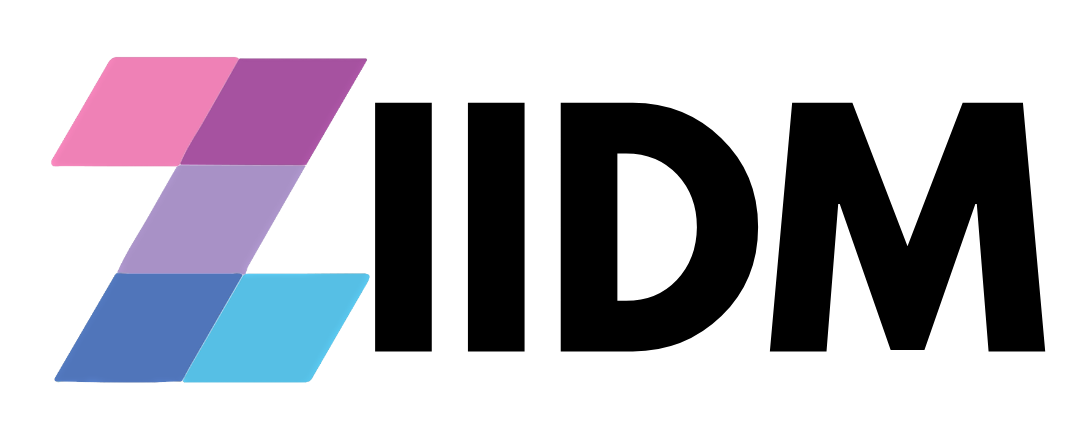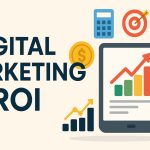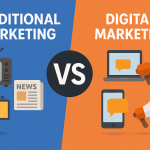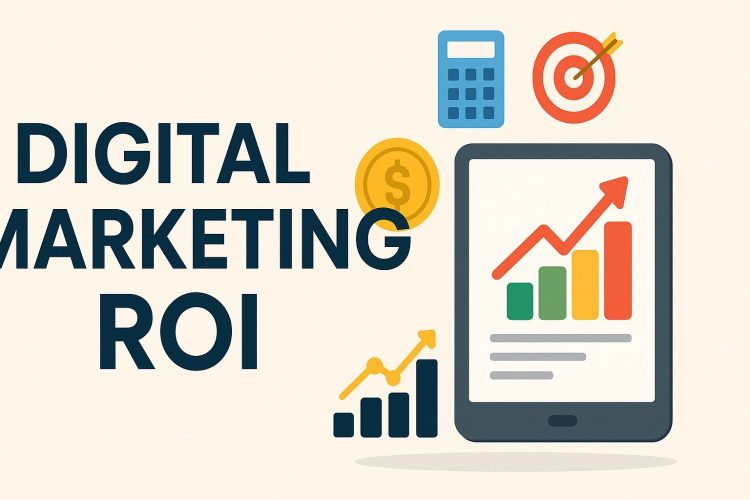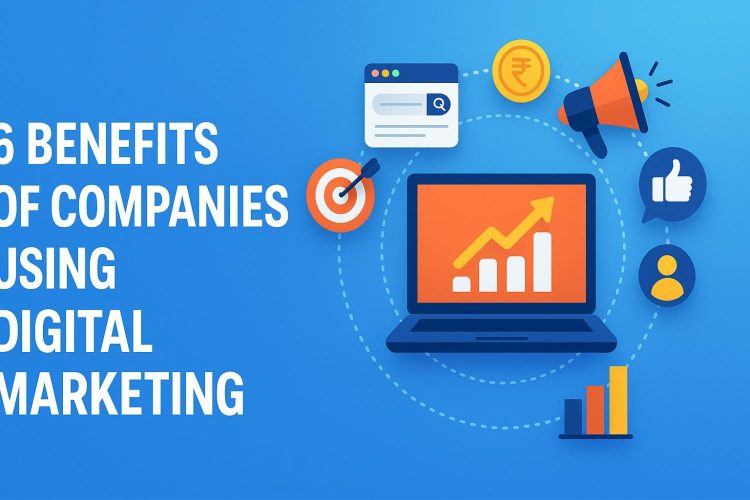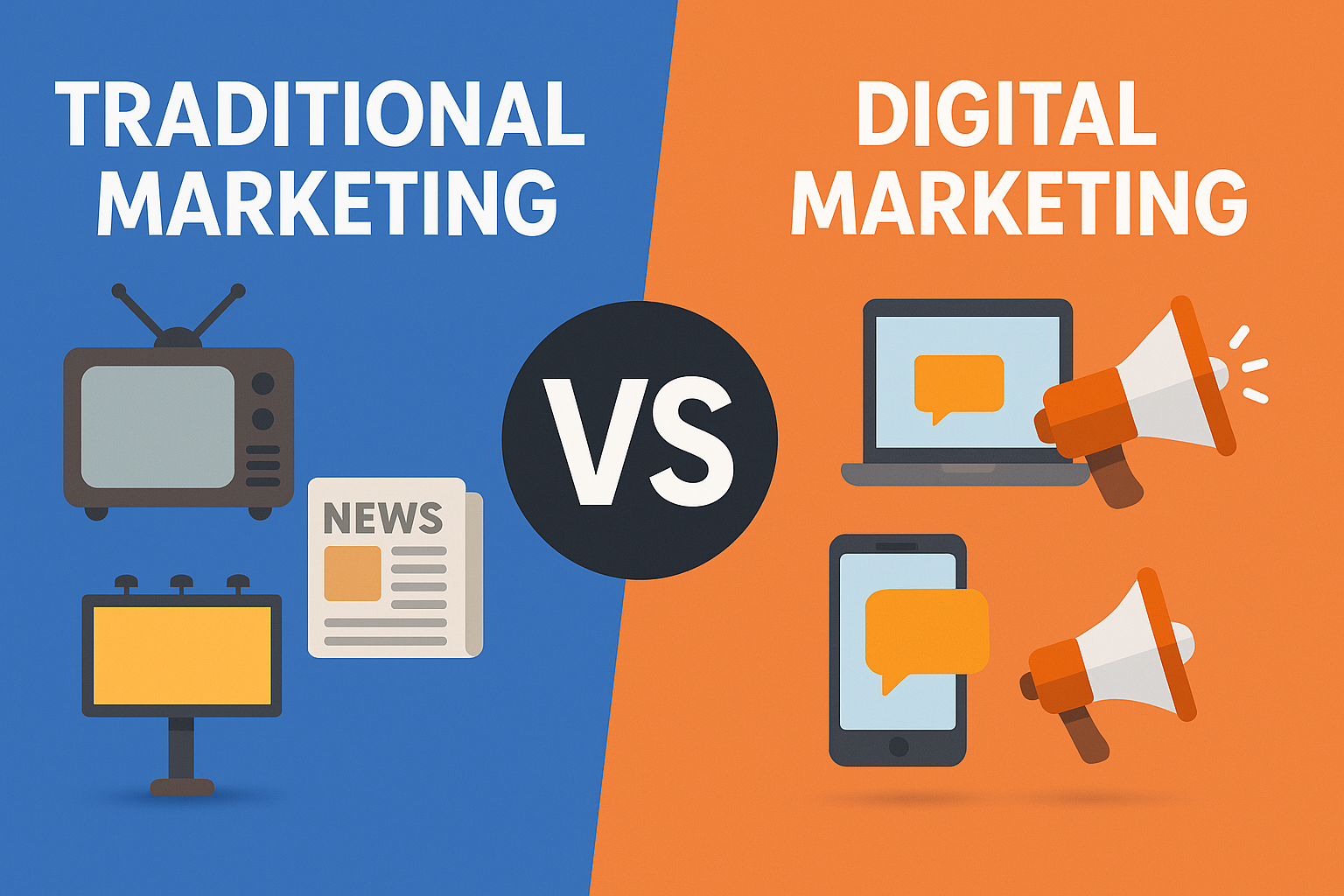
Marketing has always been the art of making people fall in love with a product (sometimes even before they know they need it). For decades, businesses relied on Traditional Marketing — the TV ads that interrupted cricket matches, the radio jingles that got stuck in people’s heads, and the billboards that stared at commuters every morning. But then entered the game-changer — Digital Marketing, with its SEO, social media ads, and influencer campaigns. 🎯
So, which one is better? Or should they shake hands and work together? Let’s dive into this fun, insightful, and slightly cheeky breakdown by a seasoned digital marketer with 14+ years of experience.
What is Traditional Marketing? 📺
Traditional marketing refers to the old-school methods of promoting a business — TV ads, radio spots, print media, billboards, flyers, and even those “Buy 1 Get 1 Free” pamphlets shoved into newspapers. It’s about reaching the masses, often without knowing who’s actually paying attention.
Example: Think of Coca-Cola ads during cricket World Cups or those giant hoardings of jewelry shops during Diwali.
Pros of Traditional Marketing:
-
High visibility for mass audiences
-
Builds strong brand recall
-
Tangible (flyers, brochures, billboards)
Cons:
-
Expensive 💸
-
Hard to measure ROI
-
Limited targeting
What is Digital Marketing? 💻📱
Digital Marketing is the modern-day superhero 🦸♂️ of business promotion. It includes SEO, social media ads, content marketing, influencer marketing, email campaigns, and more. The beauty? It allows brands to target exactly who they want, track results in real time, and optimize campaigns with precision.
Example: That Instagram ad showing the perfect pair of shoes you didn’t know you needed but now can’t stop thinking about.
Pros of Digital Marketing:
-
Cost-effective 💰
-
Precise targeting 🎯
-
Easy to measure ROI
-
Real-time optimization
Cons:
-
Internet dependency
-
Shorter attention span of users 🐿️
-
Competition overload
Traditional Marketing vs Digital Marketing: The Face-Off 🥊
Here’s a clear comparison for anyone confused between the two:
| Feature/Aspect | Traditional Marketing 📺 | Digital Marketing 💻 |
|---|---|---|
| Reach | Mass audience | Targeted audience 🎯 |
| Cost | Very expensive 💸 | More affordable 💰 |
| ROI Measurement | Difficult 📉 | Easy & trackable 📊 |
| Speed | Slow (print, TV booking) | Fast (ads go live in minutes 🚀) |
| Flexibility | Low (once printed/shot, done) | High (edit, pause, tweak anytime) |
| Engagement | One-way communication | Two-way, interactive (likes, shares, comments ❤️) |
| Examples | TV, Radio, Print, Billboards | SEO, Social Media Ads, Email Campaigns |
| Best For | Building brand awareness | Driving leads, conversions, engagement |
Why Digital Marketing Outshines Traditional Marketing 🌟
As a 14-year veteran in the field, one thing stands clear: Digital Marketing gives brands control, speed, and precision. Unlike traditional ads where businesses pray that people see their message, digital marketing ensures the right audience sees it at the right time.
-
Want to reach only women aged 25-40 who love skincare? ✅ Digital marketing can.
-
Want to stop wasting money on uninterested audiences? ✅ Digital marketing fixes that.
-
Want to track exactly how many people clicked your ad at 3:17 PM yesterday? ✅ Done.
Traditional marketing may still be great for big brands with fat budgets and nationwide campaigns. But for startups and SMEs, digital marketing is the holy grail.
Funny Real-Life Example 😂
Traditional Marketing: A pizza shop prints 10,000 flyers and distributes them everywhere. Out of those, maybe 500 people actually order pizza.
Digital Marketing: The same pizza shop runs a Facebook ad targeting people within 3 km radius who have “Pizza Lover” in their interests. Boom — 2,000 orders in a week. 🍕
Which one sounds smarter? You know the answer
When to Use Traditional Marketing? 🕰️
Traditional marketing isn’t dead. It still works like magic in:
-
Rural areas with limited internet access 🌾
-
Brand launches that require mass buzz
-
Events, expos, and local promotions
When to Use Digital Marketing? 🌐
Digital marketing is ideal when:
-
You want measurable ROI 📊
-
You’re on a budget
-
You want global reach 🌍
-
You’re aiming for quick conversions
Can They Work Together? 🤝
Absolutely! The most powerful strategy is integrated marketing — using both traditional and digital methods. For example, a brand may launch a TV ad (traditional) but drive viewers to scan a QR code or visit their Instagram page (digital).
This combination creates a strong offline + online presence.
The Keyword Density Talk 📌
Since the focus keyword is Traditional Marketing vs Digital Marketing, here’s how it should play out:
-
Mentioned naturally in headings, paragraphs, and tables.
-
Used at ~1.5% density across ~2000 words.
-
Balanced so it doesn’t feel “stuffed.”
✅ Example sentence: The debate on Traditional Marketing vs Digital Marketing often boils down to cost, reach, and engagement.
Want to master the art of Traditional Marketing vs Digital Marketing and learn how to use both smartly for maximum ROI? Join ZIIDM – The #1 Digital Marketing Institute in Surat, where students don’t just study; they practice real-world campaigns and become job-ready.
👉 Learn Digital Marketing like a pro with ZIIDM today!
